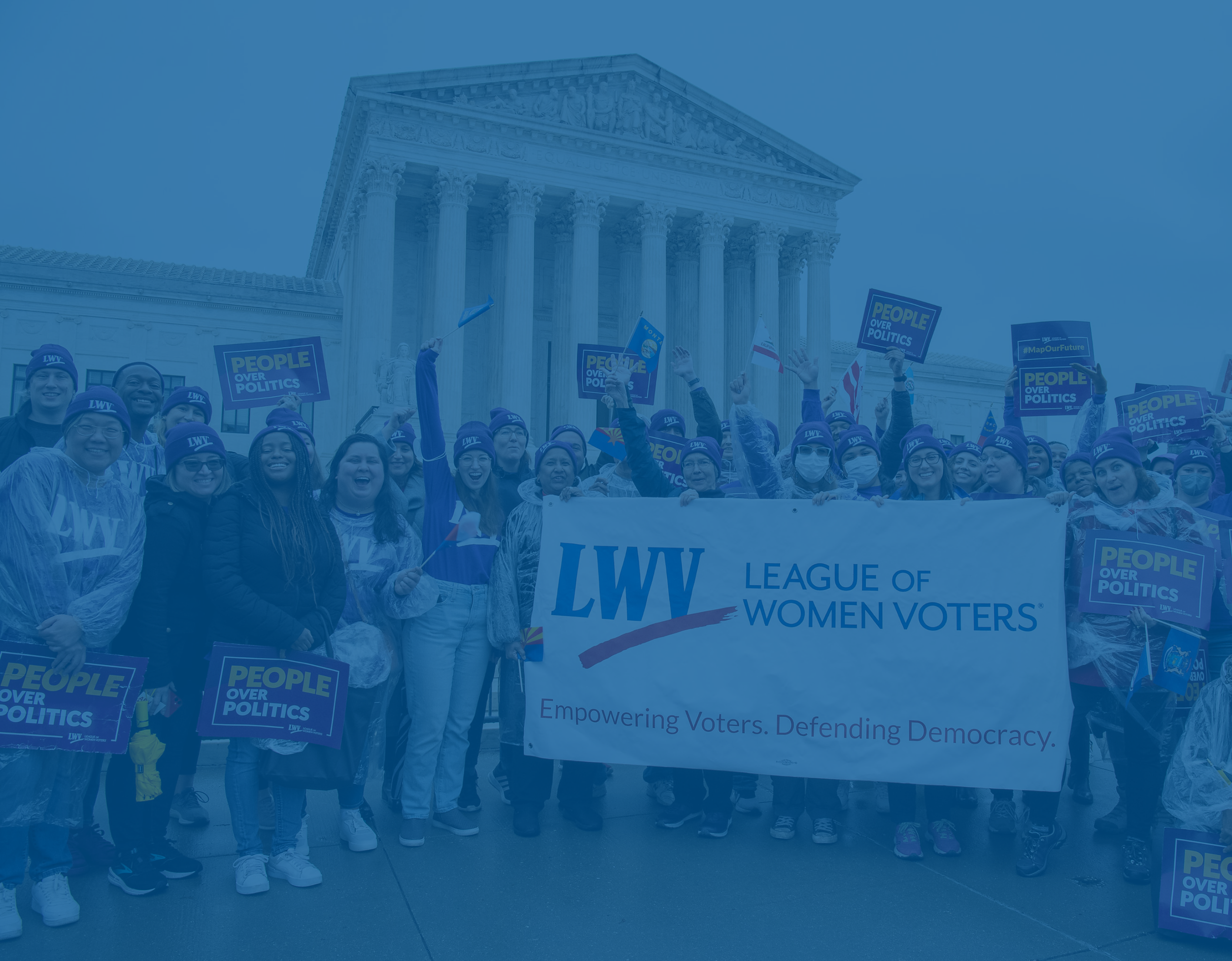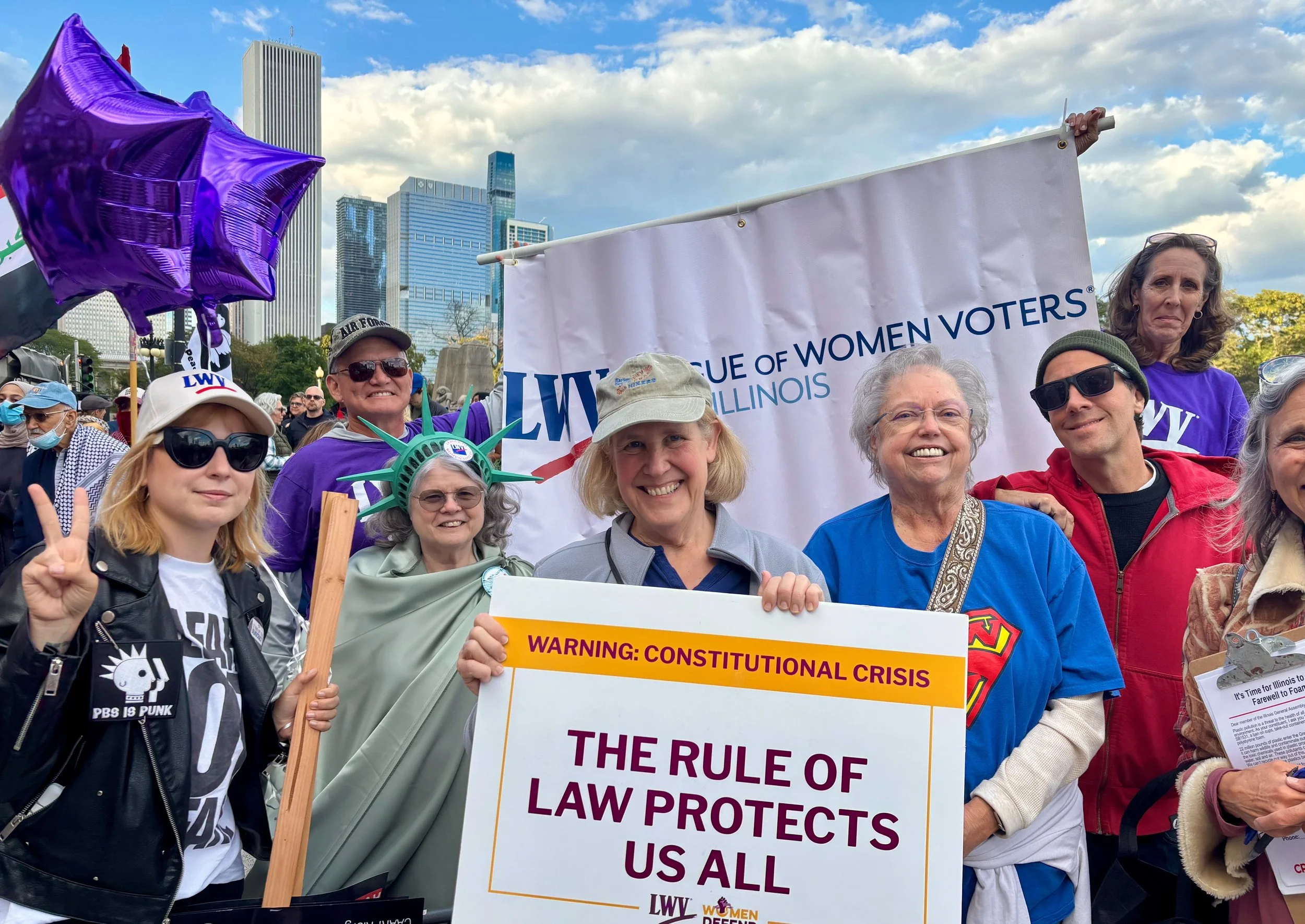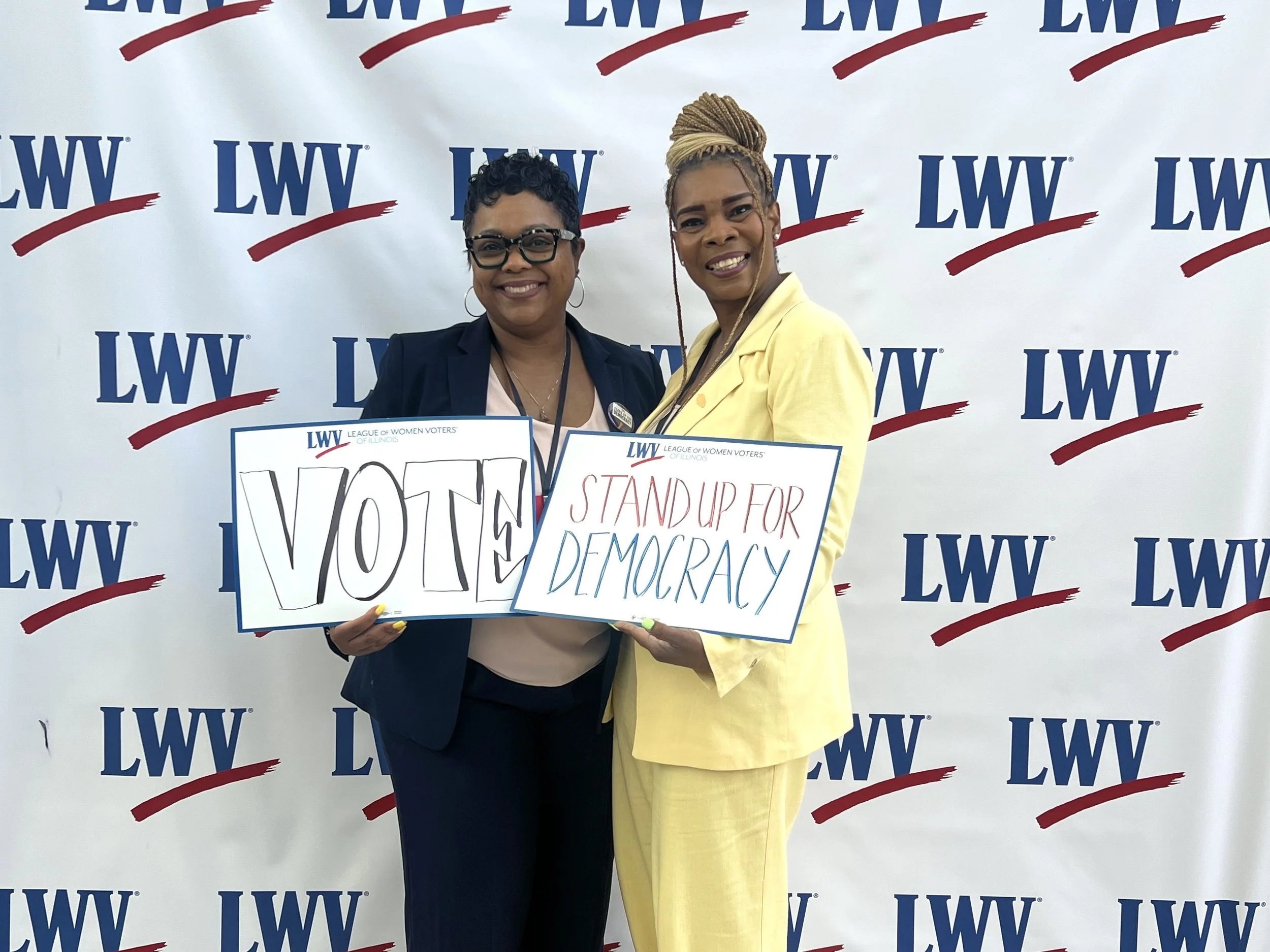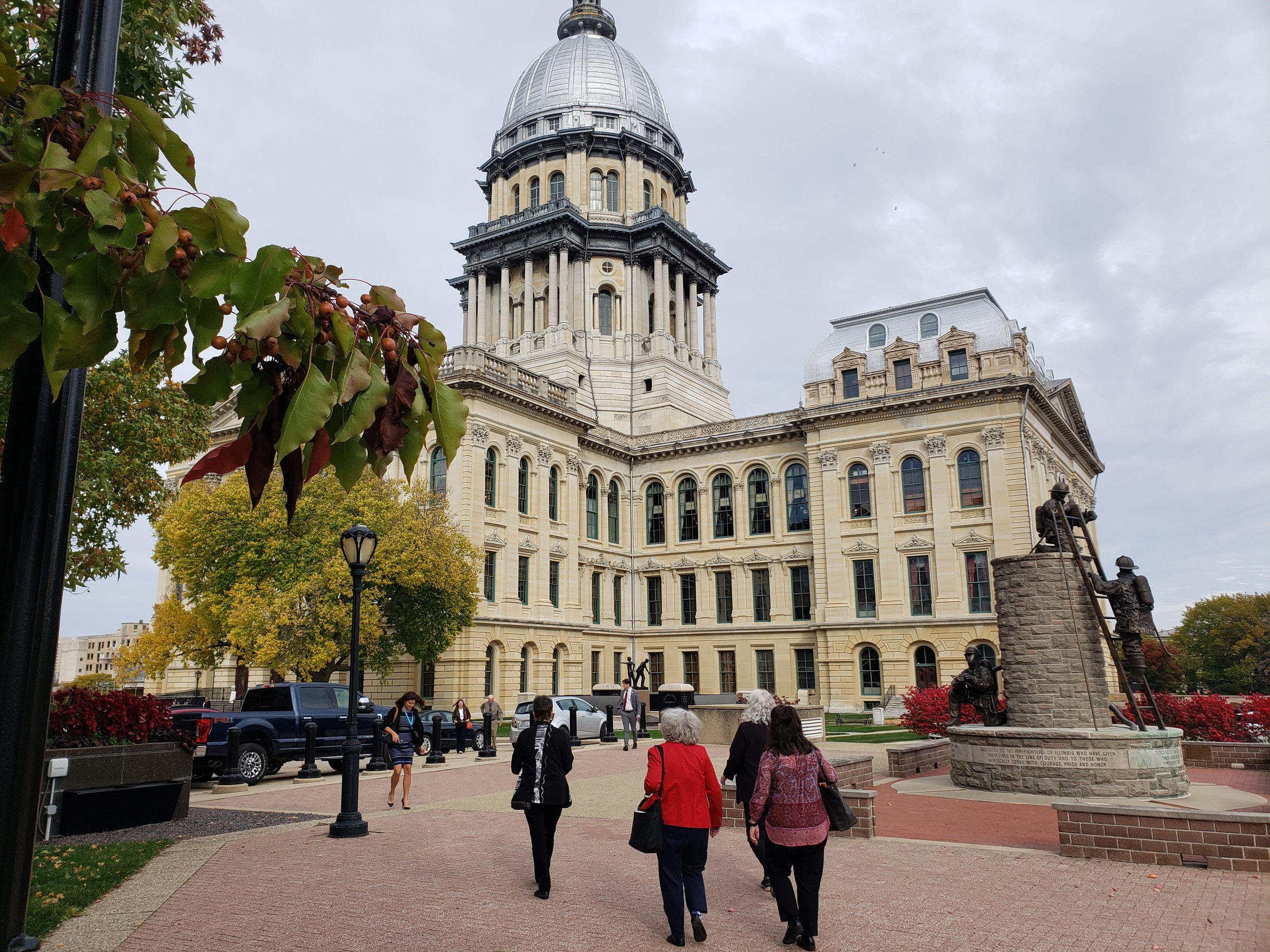

Who We Are
The League of Women Voters of Illinois is a nonpartisan organization that works to protect fair elections and increase civic engagement. We endeavor to influence public policy through education and advocacy.

Take Action!

Become a Member
Join our mission! Sign up for your League of Women Voters membership today.

Recent News from the League
What do current efforts to re-draw legislative districts mean for our democracy? LWV of Illinois Vice President Kathy Cortez was on WTTW's Chicago Tonight on December 10 to speak about mid-cycle redistricting.
LWVIL condemned the deployment of National Guard troops to Illinois, launched a campaign for Fair Maps in 2030, supported new Illinois legislation to protect immigrant communities, and more.
Communities across Illinois turned out in huge numbers for peaceful NO KINGS protests on October 18. We’re proud of all the League members and friends who joined to speak out against federal overreach and cuts to essential services.
We stand strong in support our communities and condemnation of the presence of troops in our state, and we’ve partnered with Common Cause Illinois to place billboards on major roadways around Chicagoland.
Are you passionate about civic engagement and making sure every eligible voice is heard at the ballot box? One of the most impactful ways you can contribute to democracy is by becoming a Deputy Registrar in Illinois.
We spoke out on Illinois redistricting efforts, the threat of National Guard deployment to Chicago, proposed election reforms, and more.
We recently condemned the threat of National Guard deployment to Chicago and joined community organizations in staging peaceful protests in Chicago and Rockford.
The President has once again threatened to deploy the National Guard with a rationale of lies—this time to Chicago—against the wishes of local and state officials and the general public.
Low voter turnout is proof the U.S. needs to expand, not reduce, voting options. Read LWVIL Vice President Kathy Cortez's comments in the Daily Herald's recent article on threats to mail-in voting.
We oppose any effort to usurp the voice of the voter by attempting to use redistricting to predetermine the outcome of an election. Read LWVIL Vice President Kathy Cortez's comments in the Daily Herald's recent article on redistricting in Illinois.
LWVIL joined LWVUS to file an amicus brief supporting access to justice for voting rights organizations in the Supreme Court case Bost v. Illinois State Board of Elections, and more!
Professor Steven Schwinn joined us to speak on major decisions made by the Supreme Court this year—and the impact those decisions are likely to have on the future of democracy in the United States.
On July 17, we honored the anniversary of the passing of civil rights hero John Lewis with action. League members and supporters attended rallies across the state during a national mobilization recommitting to the fight for voting rights and democracy.
League members from across Illinois came together in Naperville this weekend for LWVIL’s 62nd Biennium Convention! We celebrated all that we have accomplished over the past two years and planned for the future together.
On Saturday, June 14, peaceful No Kings protests were held across Illinois in support of our democracy. League of Women Voters members hit the streets to stand against actions being taken by the current administration that threaten democracy.
Three bills that LWVIL lobbied for in 2025 passed the General Assembly and are now awaiting the governor’s signature.
Over the last few months, the League spoke out against the SAVE Act and traveled to Springfield to advocate for bills in the state legislature.
How, when there is such close alignment in our beliefs and values about voting and elections—Democrats, Republicans and Independents alike—how could we end up with Congressional legislation as bad as the SAVE Act? And more importantly, how do we stop it?
We had an amazing time gathering in Springfield for Lobby Day! Members from across the state joined us to meet with legislators and advocate for bills that protect our Constitutional rights and promote equity in education and housing.
How can we protect natural areas from chemical pesticides? This Earth Day, we sat down with Kim Erndt-Pitcher of Prairie Rivers Network.
We gave expert testimony at the Illinois House Ethics and Elections Committee’s hearing in Springfield to explain the potential implications that the federal SAVE Act could have on Illinois elections and ballot access.
The Chicago Tribune published a letter to the editor from LWVIL President Becky Simon in response to a recent call for consolidation of Illinois local governments.
Many voters travel for work, don’t drive, can’t drive or walk to polling places, live overseas or simply know who they want to vote for and want to “get voting out of the way.” These circumstances know no party.
Local Leagues mobilized at ‘Hands Off!’ events across Illinois on April 5! Thank you to all the members and friends who joined us to stand up for voting rights.
Over the last few months, the League spoke out on the SAVE Act as well as many bills moving through the Illinois state legislature.
We convened a panel of academics and activists committed to public institutions that empower young citizens with critical knowledge and skills of analysis and discernment.
Check out our interview with ABC7 Chicago to learn more about the League’s response to the Trump administration’s new executive order on voting and elections.
Let's talk about working women and the wage gap! In recognition of Women's Equal Pay Day, we sat down with Sharmili Majmudar of Women Employed.
We hit the streets of Chicago to celebrate International Women’s Day and show our collective power. LWVIL VP Kathy Cortez spoke at the rally to warn against the SAVE Act, which would introduce significant barriers to registering to vote.

Get Ready to Vote
Register to vote, find your polling place, look up your ballot, and more at VOTE411.org.
























